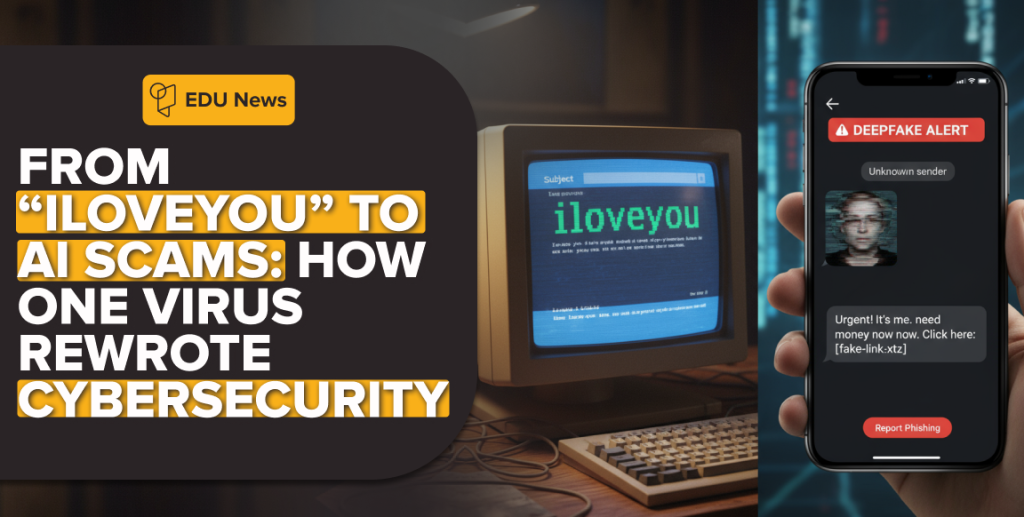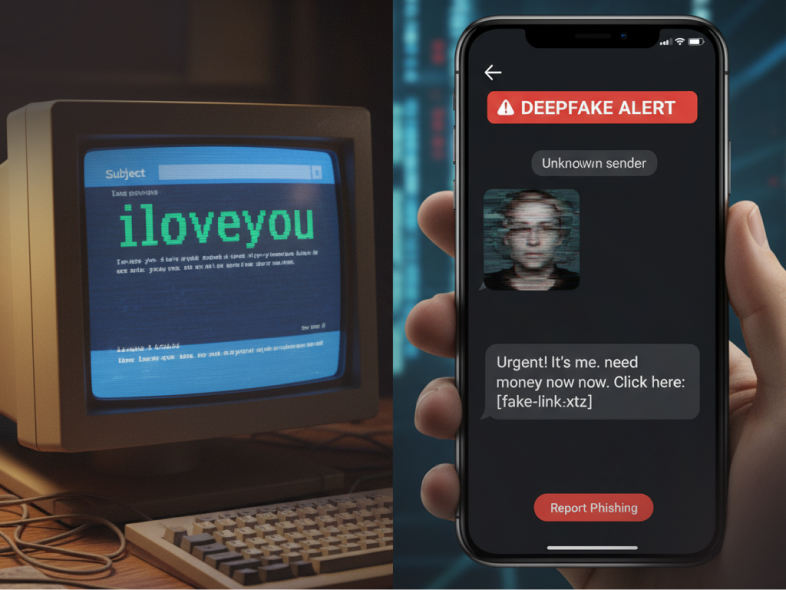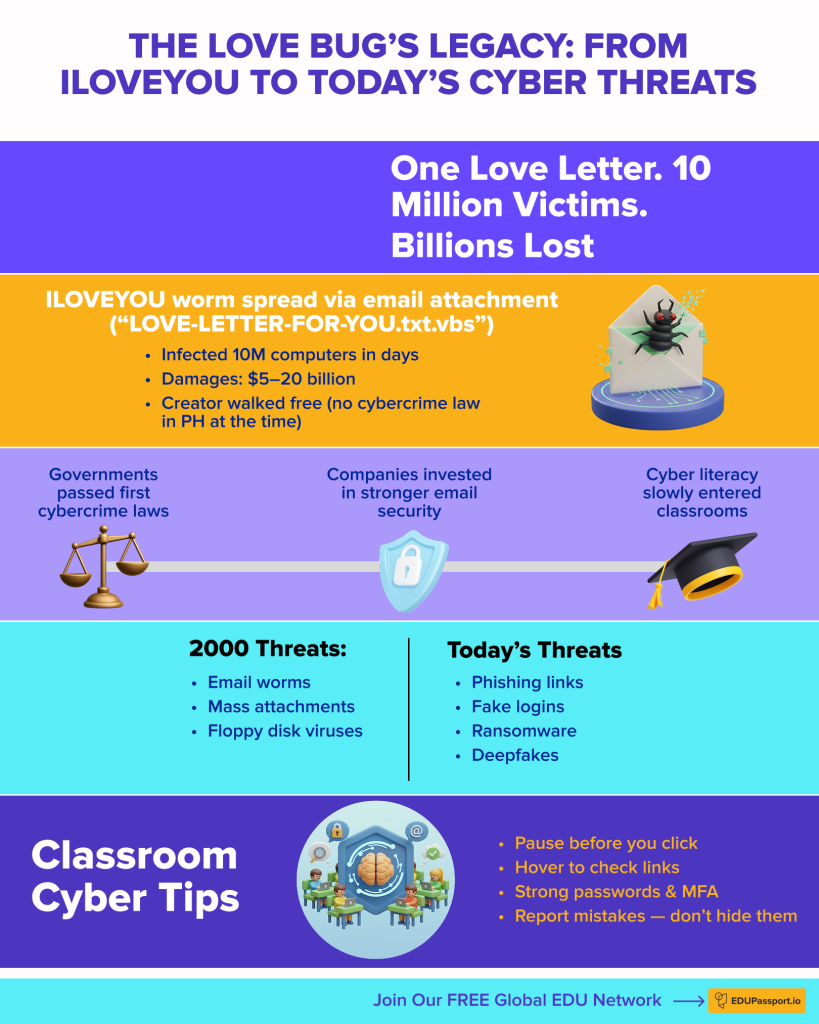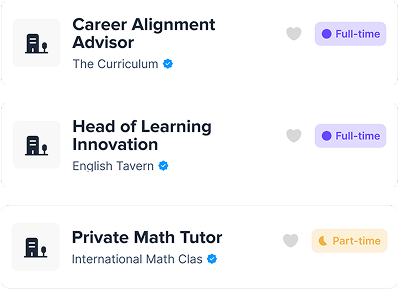In May 2000, inboxes across the world lit up with a strange yet tempting subject line:
“ILOVEYOU.”
The attachment looked innocent enough: LOVE-LETTER-FOR-YOU.TXT.vbs.
It promised romance. What it delivered was chaos.
Clicking unleashed a self-replicating worm that raced through Microsoft Outlook email systems. Within 24 hours, it crippled communication in Asia, Europe, and the United States. (CNN)
Government offices, major corporations, even the Pentagon had to shut down email systems to stop the spread. Damages were estimated between $5–20 billion — making it one of the most expensive cyberattacks in history. (Wired)
The Creator Nobody Could Charge
Investigators traced the worm back to Onel de Guzman, a 24-year-old computer student in Manila. De Guzman later admitted he may have released it “by accident,” after creating it as a way to steal internet passwords. (Wired)
But here’s the twist: the Philippines had no cybercrime law at the time.
So while the world demanded justice, prosecutors had no legal framework to charge him. De Guzman walked free.
This gap exposed a global blind spot: technology was advancing faster than laws. The aftermath pushed many countries to strengthen or draft their first cybercrime legislation.
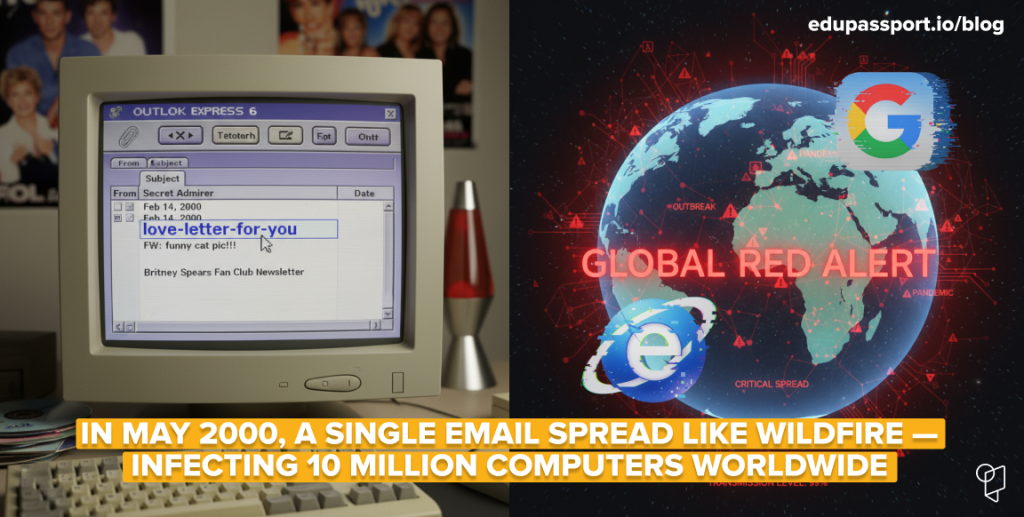
The Wake-Up Call
The “ILOVEYOU” worm wasn’t the first virus, but it was the one that made the world pay attention. It showed:
- Humans are the weakest link. People clicked because they were curious, flattered, or lonely. Social engineering proved more dangerous than code.
- Global systems are fragile. From corporations to government agencies, nobody was immune.
- Laws lag technology. The virus spurred legal reforms across Asia, Europe, and the U.S., laying the groundwork for today’s cybercrime policies. (BBC)
Why This Matters for Education
Fast-forward to today. Students aren’t being duped by email worms anymore — but they are facing:
- Phishing scams that mimic their teachers or school portals.
- AI-generated fakes — from voices to videos — that look scarily real.
- Data privacy threats through social apps, games, and “free” platforms.
The core lesson hasn’t changed: don’t click blindly.
Educators now embed digital literacy and cyber hygiene into lessons, from primary school up. UNESCO and many ministries of education stress that online safety isn’t an “extra” — it’s a survival skill. (UNESCO Digital Literacy Toolkit)
EDU Passport’s Take
The ILOVEYOU saga is a love story gone wrong — a global reminder that one impulsive click can rewrite history.
Educators today have a powerful role: not just teaching formulas or grammar, but raising a generation of savvy digital citizens. Students must learn to pause, question, and think before clicking.
Would you have clicked that love letter back in 2000? Don’t worry, you’re not alone. Millions did. But the world is still paying for that curiosity — and classrooms are where the fix begins.




